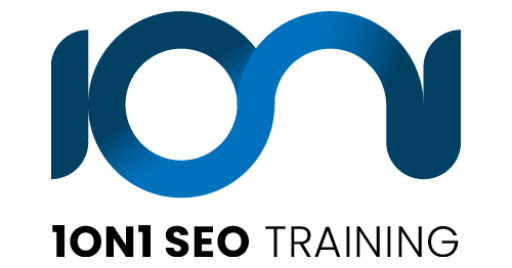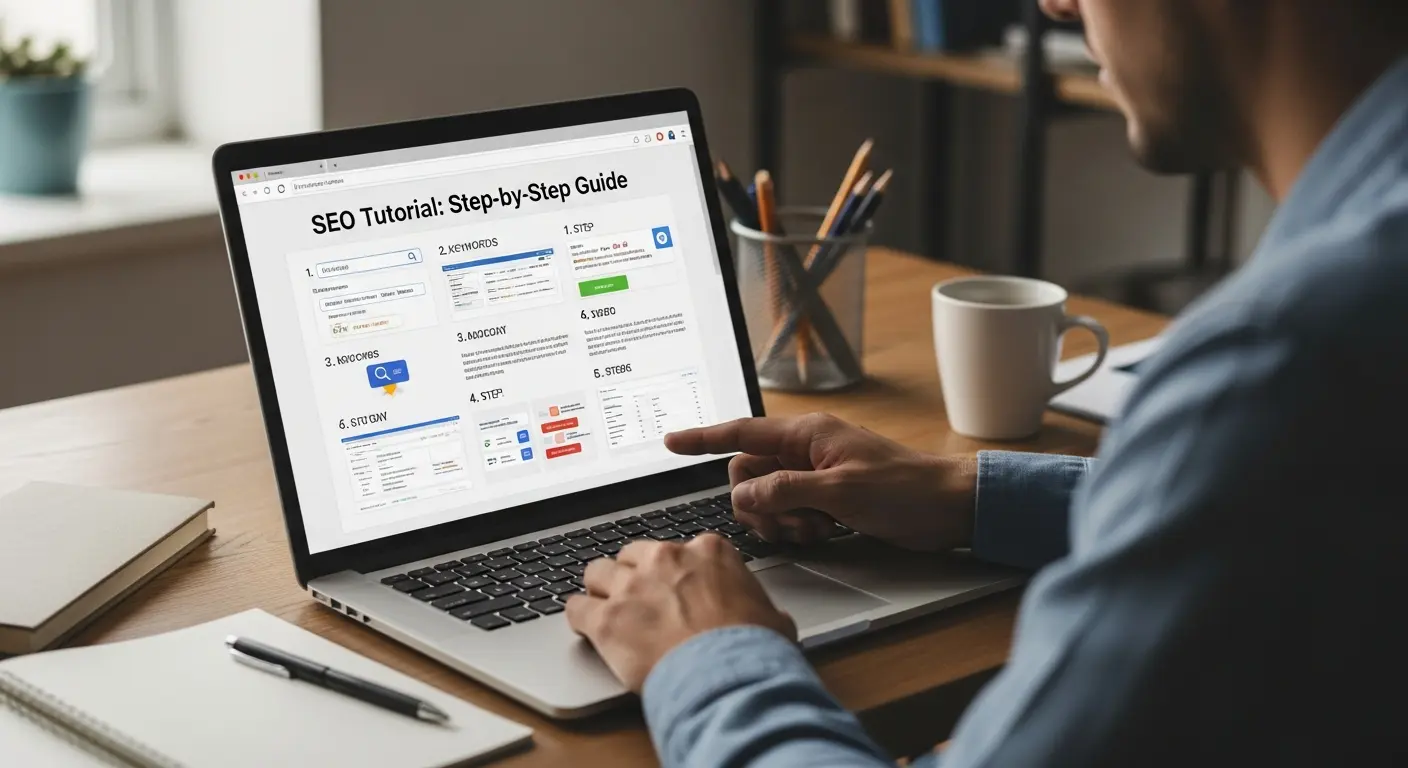Why SEO is important for business? SEO remains a linchpin for businesses seeking online visibility, brand recognition, and sustainable growth in the Internet of Things era. Understanding the nuances of SEO, its tailored strategies for businesses, the role of Google Business Profile, and the importance of Online Reputation Management (ORM) are essential for any company navigating the digital realm.
How Does SEO Differ for Businesses?
Why SEO is important for business? SEO for businesses is a specialized approach that optimizes digital content to attract, engage, and convert potential customers. Unlike individual or personal SEO strategies, businesses focus on reaching a target audience, driving relevant traffic, and ultimately increasing revenue. The emphasis is on aligning SEO efforts with the broader business objectives, emphasizing the products or services offered, and leveraging location-based optimization for local businesses.
What is Google Business Profile?
Mastering why SEO is important for business is crucial for online enterprises. A cornerstone of local SEO for businesses, Google Business Profile ensures that companies appear prominently in local search results. It's a platform where businesses can manage their online presence, providing essential information such as business hours, contact details, and customer reviews. A well-optimized Google Business Profile enhances local visibility, instills trust, and serves as a vital touchpoint for potential customers seeking information about a business.
What is Online Reputation Management?
In the digital age, a business's reputation extends far beyond word-of-mouth; you also need to master why is SEO important for business. Online Reputation Management (ORM) involves actively monitoring, influencing, and managing a business's digital image. This includes responding to customer reviews, addressing concerns, and fostering a positive online narrative. ORM is integral to SEO for businesses, as search engines often consider online reviews and reputation when determining search rankings.
Why SEO Is Important for Business And What Are The Strategies?
Keyword Research and Strategy
Understanding user search behavior and identifying the phrases they commonly use is crucial. The goal is not just to attract traffic but to attract the right traffic that is more likely to convert. Keyword research is an ongoing process, requiring businesses to stay attuned to shifting trends, industry jargon, and emerging search patterns.
Action Steps:
Generate Seed Keywords:
Create a list of seed keywords that are directly related to your products, services, or content. These will serve as the foundation for expanding your keyword list.
Use Keyword Research Tools:
Utilize keyword research tools such as Google Keyword Planner, Ubersuggest, or AnswerThePublic to discover relevant keywords, search volumes, and variations. These tools can help you identify high-potential keywords.
Consider User Intent:
Analyze the intent behind the keywords. Are users looking for information, products, or solutions? Tailor your content to match the user intent, as this aligns with Google's emphasis on providing valuable results.
Organize Keywords Into Themes:
Group related keywords into themes or topics. This organization will help you create targeted content clusters and improve the overall structure of your website.
Prioritize and Refine Your List:
Prioritize your keyword list based on relevance, search volume, and competition. Focus on high-value keywords that align with your business goals. Regularly revisit and refine your keyword strategy based on changing trends.
On-Page Optimization
On-page optimization is the digital makeover that ensures your website is visible to search engines and offers an exceptional user experience. It's a big part of why SEO is important for business. This involves a meticulous approach to optimizing meta titles, descriptions, and headers with relevant keywords. Each webpage element contributes to optimization, from URL structure to image alt tags.
In an era dominated by mobile users, mobile optimization is not just a best practice; it's a necessity. Google's algorithms prioritize mobile-friendly websites, and businesses ignoring this aspect risk losing a significant portion of their potential audience. An essential facet of on-page optimization is ensuring a smooth and responsive user experience across devices.
This process goes beyond pleasing search engines; it creates a user-friendly environment that encourages visitors to stay, explore, and convert. A well-optimized website becomes a powerful tool that attracts and retains its audience.
Action Steps:
Create Compelling Title Tags:
Craft unique and compelling title tags for each page. Include the primary keyword near the beginning and keep the title within the recommended character limit (typically around 60 characters) to ensure it displays well in search results.
Optimize Meta Descriptions:
Knowing why SEO is important for business means writing engaging meta descriptions that accurately summarize the page content. While meta descriptions may not directly impact rankings, they influence click-through rates. Include relevant keywords and concisely describe (around 150-160 characters).
Use Descriptive URLs:
Mastering why SEO is important for business means creating SEO-friendly URLs that are descriptive and contain the target keyword. Avoid generic or automatically generated URLs. A clear and concise URL structure helps search engines and users understand the page's content.
Header Tags for Structure:
The main reason why SEO is important for business is it makes it possible for machines to understand the context of each page. Structure your content with header tags (H1, H2, H3, etc.) to create a hierarchical outline. The H1 tag should include the main topic or keyword, and subsequent headers should organize subtopics. This not only aids readability but also provides search engines with contextual information.
Optimize Image Alt Text:
Add descriptive and keyword-rich alt text to all images on the page. Alt text not only provides accessibility for users with disabilities but also contributes to image SEO. Describe the content of the image accurately while incorporating relevant keywords.
Content Optimization:
Ensure your content is comprehensive, valuable, and aligned with user intent. Use your target keywords naturally throughout the content and aim for a good balance between keyword optimization and readability. Break up content into digestible sections with descriptive subheadings.
Internal Linking:
Incorporate internal links to relevant pages within your website. This helps search engines understand the structure of your site and distributes page authority. Anchor text for internal links should be descriptive and relevant.
Page Loading Speed:
Optimize page loading speed for a better user experience and improved search rankings. Compress images, minimize HTTP requests, leverage browser caching, and utilize content delivery networks (CDNs) to enhance page performance. Google's PageSpeed Insights can help identify areas for improvement.
Google Business Profile Optimization
Your Google Business Profile is the digital storefront for local searches. Claiming and optimizing this profile is akin to ensuring your business's presence on the busiest street in the digital world. Accurate and up-to-date information is critical, including business hours, location, and contact details.
Encouraging customers to leave reviews is not just a vanity metric; it significantly contributes to local SEO. Positive reviews act as digital testimonials, instilling trust in potential customers and signaling to search engines that your business is reputable. Google values businesses with a complete and well-managed Business Profile, often placing them prominently in local search results.
Action Steps:
Claim and Verify Your Profile:
Ensure you claim and verify ownership of your Google Business Profile. This process involves receiving a verification code via mail, phone, or email. Verified profiles instill trust and provide you with control over the information displayed.
Complete Business Information:
Fill out all relevant business information accurately. Include your business name, address, phone number, website, hours of operation, and business category. The more complete and accurate your information, the better your profile will perform in local search results.
Add Engaging Business Descriptions:
Craft a concise yet compelling business description. Highlight what makes your business unique, its history, and your products or services. Use keywords naturally to improve search relevance.
Upload High-Quality Photos:
Add high-resolution photos that showcase your business, products, and services. Include images of your storefront, team, and unique features that set your business apart. Regularly update photos to keep content fresh and engaging.
Utilize Google Posts:
Use Google Posts to share updates, promotions, events, and other relevant information directly on your profile. These posts appear in your business listing and local search results, providing additional visibility.
Enable Messaging:
Enable the messaging feature to allow customers to contact you directly through your Google Business Profile. Respond promptly to inquiries and provide helpful information. This feature enhances customer communication and engagement.
Create Services and Product Listings:
If applicable, use the Services and Products sections to provide detailed information about your services or products. This helps potential customers understand what your business provides.
Implement Attributes:
Utilize attributes to highlight specific features of your business, such as whether you offer outdoor seating, Wi-Fi, or accept credit cards. Attributes provide valuable information to users and can influence their decision-making.
Monitor Insights and Adjust:
Regularly review the insights provided by Google My Business. Understand how customers find and interact with your business listing. Use this data to make informed decisions about your optimization strategy, such as adjusting business hours during peak times.
Content Creation and Marketing
Content is the currency of the digital realm, and for businesses, it's a means of establishing authority, connecting with the audience, and addressing their needs. Developing high-quality, relevant content that speaks directly to your target audience is a fundamental aspect of SEO.
A robust content marketing strategy involves diversifying content formats – from informative blog posts and engaging infographics to compelling videos. Each piece of content should showcase your expertise and resonate with your audience's search intent.
Consistency is critical in content creation. Regularly updating your website with fresh, valuable content signals to search engines that your site is active and relevant. The goal is not just to attract visitors but to keep them coming back for more.
Backlink Building
Backlinks are the digital votes of confidence your website receives from other reputable sites. Backlinks are another huge part of why SEO is important for business. Building a robust backlink profile is like establishing a trust network within the digital ecosystem. However, the emphasis here is on quality over quantity.
Earning high-quality links from reputable websites in your industry or niche enhances your website's authority. Search engines view these backlinks as endorsements, considering your content valuable and worthy of reference. Businesses should focus on organic link-building strategies, steering clear of spammy practices that can have adverse effects.
Action Steps:
Conduct Competitor Backlink Analysis:
Identify competitors in your industry and analyze their backlink profiles using tools like Ahrefs, Moz, or SEMrush. Understand where their backlinks come from and target similar high-quality sources.
Create High-Quality, Shareable Content:
Develop valuable, shareable content that naturally attracts backlinks. Content that provides unique insights solves problems, or offers comprehensive guides tends to earn more organic backlinks. Ensure your content is well-researched, relevant, and authoritative.
Leverage Guest Blogging:
Guest blogging on reputable websites in your industry is an effective way to earn backlinks. Write high-quality, informative articles that showcase your expertise and include a relevant link back to your site. Focus on websites with good domain authority.
Build Relationships with Influencers:
Identify influencers or thought leaders in your niche and build relationships with them. Collaborate on content, interviews, or partnerships that can result in them linking back to your website. Influencer endorsements can significantly boost your backlink profile.
Submit Your Site to Relevant Directories:
Submit your website to relevant and authoritative directories in your industry. Ensure that the directories are reputable and genuinely connect to your business. Avoid spammy or low-quality directories.
Broken Link Building:
Identify broken links on reputable websites within your industry. Reach out to the website owners, inform them about the broken link, and suggest replacing it with a link to relevant content on your site. This method provides value while earning you a backlink.
Participate in Community Engagement:
Engage in online communities, forums, and discussion platforms relevant to your industry. Contribute valuable insights, answer questions, and establish yourself as an authority. Many communities allow you to include a link to your website in your profile.
Create Infographics and Visual Content:
Develop visually appealing and informative infographics. Infographics are highly shareable, and websites often link to them as a source of valuable information. Include an embed code with a link to your site to encourage sharing.
Utilize Social Media Platforms:
Share your content on social media platforms to increase its visibility. While social signals may not directly impact SEO, social sharing can lead to more exposure, increasing the likelihood of others linking to your content.
Social Media Integration
Social media is not just a platform for connecting with your audience; it's a powerful ally in SEO. Leveraging social media platforms amplifies your online presence, creating additional channels through which your content can reach a broader audience.
Sharing your content on social media drives traffic and generates social signals. These signals, including likes, shares, and comments, positively affect search engine rankings. Engaging with your audience on social media fosters a sense of community and strengthens your online presence.
Online Reputation Management
In the interconnected digital landscape, reputation is everything. Actively managing your online reputation is a proactive step toward shaping the narrative surrounding your business. This involves responding promptly to customer reviews, addressing concerns, and fostering a positive online image.
Online Reputation Management (ORM) goes beyond reactive responses to negative feedback; it involves cultivating a positive digital presence. This can be achieved through showcasing positive customer experiences, highlighting community involvement, and consistently delivering on your brand promises.
Monitoring online mentions and reviews provides valuable insights into customer sentiment and allows businesses to address issues before they escalate. ORM is about mitigating negative feedback and actively curating a favorable digital image.
Action Steps:
Monitor Online Mentions:
Regularly monitor online mentions of your business across various platforms, including social media, review sites, and forums. Utilize tools like Google Alerts, Social Mention, and Brand24 to stay informed about what people are saying about your brand.
Claim and Optimize Business Profiles:
Claim and optimize your business profiles on major review sites and social platforms. This includes Google My Business, Yelp, Facebook, and industry-specific platforms. Ensure your business information is accurate, complete, and consistent across all platforms.
Respond to Reviews Professionally:
Respond promptly and professionally to both positive and negative reviews. Acknowledge positive feedback with gratitude and address negative feedback with empathy and a commitment to resolving issues. Demonstrating responsiveness builds trust with your audience.
Generate Positive Content:
Create and promote positive content about your business. This could include blog posts, press releases, success stories, and other content that showcases your business in a positive light. Optimizing this content for search engines helps control the narrative.
Address Negative Content:
If there is negative or inaccurate information about your business online, address it proactively. Reach out to the source if possible, provide correct information, and work towards resolving any issues. If necessary, consult with legal professionals to address false or defamatory content.
Utilize Social Media Effectively:
Actively manage your presence on social media platforms. Regularly post updates, engage with your audience, and address concerns. Social media is often one of the first places people look for information about a business, so maintaining a positive and active presence is crucial.
Optimize Website Content:
Ensure that your website content is optimized for search engines. This includes using relevant keywords, creating valuable and shareable content, and maintaining an updated and user-friendly website. A well-optimized website can help push positive content to the forefront of search results.
Implement Online Privacy Measures:
Safeguard customer data and ensure that your business adheres to privacy regulations. Communicate clearly about how customer data is handled, protecting your business from potential privacy-related issues that could harm your reputation.
Stay Informed About Industry Trends:
Stay informed about industry trends and online reputation management best practices. The digital landscape evolves, and being aware of emerging trends and technologies helps you adapt your strategy to maintain a positive online presence.
Analytics and Continuous Improvement
In the dynamic world of SEO, analytics is the compass that guides your journey. Implementing analytics tools like Google Analytics provides a wealth of data that allows businesses to track the performance of their SEO efforts. Key metrics, such as website traffic, bounce rates, and conversion rates, offer insights into the effectiveness of your strategies.
Regularly analyzing this data is not just a retrospective exercise; it's a proactive approach to continuous improvement. Understanding what works and doesn't enables businesses to make informed decisions, refine strategies, and adapt to evolving search algorithms.
Core Algorithm Updates
Google, the orchestrator of the digital symphony, constantly fine-tunes its algorithms to create a harmonious user experience. Core updates, like the intricate notes of the Page Experience update and the melodious BERT algorithm, resound with an emphasis on user-centric elements. The cadence of page speed, mobile-friendliness, and natural language processing creates a melodic composition, ensuring that the search results are relevant and a seamless encounter for users navigating the digital realm.
User Intent
Understanding and appeasing user intent has become the poetic center of SEO strategies in this evolving sonnet of search. Like a literary scholar, Google endeavors to provide search results that echo the rhythm of user queries. This involves deciphering words and comprehending the language's nuances and context. The content that dances gracefully with the user's queries tends to spotlight the grand stage of search engine rankings.
Local SEO
Local SEO has emerged as a vibrant tapestry for businesses seeking to carve their identity in local landscapes. The brushstrokes of Google My Business (GMB) optimization, local citations, and customer reviews weave a narrative that resonates within the local community. The "Local Pack," a constellation of local business listings adorning search results, has become a sought-after canvas for businesses to showcase their colors.
Mobile-First Indexing
As mobile devices take center stage in the digital opera, Google has composed an overture of mobile-first indexing. Websites, akin to nimble dancers, must harmonize with the mobile rhythm to secure a prime spot in search rankings. Responsive design and the tempo of mobile page speed have become essential notes in the symphony of SEO, ensuring that digital performance resonates seamlessly across diverse devices.
Google's Search Features
Featured Snippets and Rich Results
A virtuoso in presenting information, Google has expanded its repertoire with featured snippets and rich results. Structured data markup becomes the spotlight, allowing websites to take center stage with enriched snippets that directly answer the audience's queries. The search results, now an illuminated serenade, are informative and visually captivating.
Video and Visual Search
In the visual symphony of search, Google increasingly integrates video content and visual elements into the composition. YouTube, a key instrument in Google's ensemble, plays a significant role, with videos often starring in search results. The search experience transforms into a cinematic interlude, where visual content becomes a captivating note in the digital orchestra.
Voice Search and AI
The rise of voice-activated virtual assistants, led by the charismatic Google Assistant, introduces a vocal crescendo to the symphony of search behavior. SEO strategies must now dance to the tune of conversational keywords and long-tail phrases, aligning with the lyrical expressions of users as they verbally articulate their queries.
Challenges and Considerations
Privacy Concerns
Amid the symphony, privacy concerns echo as a silent undertone. Google, like a guardian of digital sanctity, faces scrutiny regarding user privacy. The removal of third-party cookies and the crescendo of privacy emphasis in search analytics pose challenges, requiring SEO professionals to adapt their methods of tracking and measuring user behavior.
Algorithmic Volatility
The frequent algorithmic updates compose an unpredictable overture in the symphony of search rankings. SEO practitioners, like vigilant conductors, must stay attuned and adaptive to the evolving notes that may influence their rankings and visibility in the digital auditorium.
E-A-T and Content Quality
Expertise, Authoritativeness, and Trustworthiness (E-A-T) form the criteria for evaluating content—a critical composition in the digital symphony. Google, as a discerning critic, continues to prioritize high-quality content. Websites must establish themselves as virtuoso sources of information, embodying reliability within their respective niches.
Future Trends
Artificial Intelligence (AI)
The future promises an intelligent sonata with Google's increased use of AI in search algorithms. Machine learning becomes the guiding conductor, interpreting complex queries with finesse and leading to more accurate search results.
Core Web Vitals
Google's emphasis on user experience through Core Web Vitals becomes the rhythmic heartbeat of the future. Websites prioritizing a positive user experience, measured by loading performance, interactivity, and visual stability, will resonate with improved search visibility.
Localized and Personalized Search
Google's commitment to providing more personalized and localized search results is anticipated to continue shaping the melody of SEO. Strategies must harmonize with the increasing importance of user location and individual preferences, creating a tailored melody that resonates uniquely with each user.
Sign Up for Premium SEO Training Today
Sign up for SEO training on1ON1 SEO Training, your exclusive opportunity to learn directly from Bruce Jones, a seasoned SEO industry veteran with two decades of unparalleled experience.
Benefit from individualized training sessions tailored to your specific needs and skill level. Tap into Bruce Jones' wealth of knowledge and gain insights from real-world SEO scenarios and success stories. Put theory into action with hands-on exercises and real-time feedback, ensuring you grasp each concept thoroughly. Sign up today!






